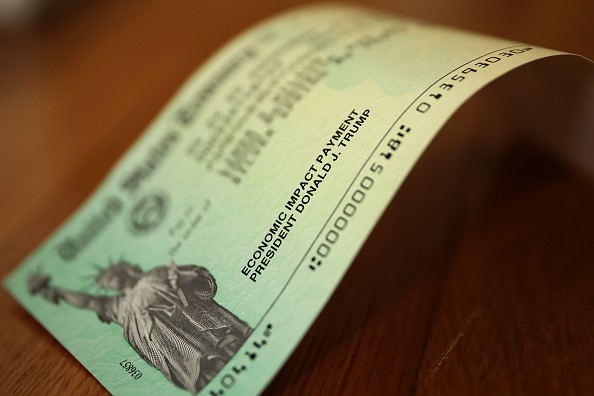New Stimulus Bill Could Fix These Problems If Lawmakers Agree
The new stimulus bill includes funding for schools, unemployment benefits, and the U.S. Postal Service (USPS). However, the proposal lacked money for the second round of stimulus checks for Americans and other elements Democrats have been pushing for.
According to a CNET report, the stimulus bill's rejection in the Senate blocked one avenue Democratic and White House negotiators could take to reach an agreement on a new stimulus relief package before 2020 ends. The Senate turned down the Republicans' "skinny" stimulus bill on Thursday.

But there are more proposals on the table than another check for individuals and families. Congress has yet to agree on the terms of a larger package, even while there's been a suggestion of new executive orders that would sidestep a bill.
These are the significant issues that Washington's been circling in the past weeks and how they could affect you:
A new stimulus payment
The new stimulus payment can help promote spending. The payment is not taxable, and you can use it for whatever needs you to need to utilize it. The people spending money will impact the recovery of the economy.
The Senate's $1 trillion HEALS Act could also authorize up to $1,200 per eligible adult, like in the CARES Act. While the House of Representatives' $3 trillion HEROES Act also proposes $1,200 stimulus payments to reach more Americans.
On the other hand, the "skinny" bill voted down by the Senate does not include the second round of stimulus payments.
Enhanced unemployment benefits
The CARES Act provided $600 per week for the unemployed, but the benefit expired on July 31. Lawmakers expressed their willingness to renew benefits. An extra weekly payment of the ordinary unemployment benefit assists unemployed individuals and their families to stand again.
On Aug. 8, President Donald Trump issued an executive action for the federal government to provide $300 unemployment benefits per week. This action calls to end when the program reaches $25 billion or for weeks of unemployment, ending not later than December 6, 2020.
Republicans want to extend the benefits but with a reduced rate. Democrats supported the resumption of the expired unemployment benefits and balked at the Senate proposal. The benefits would extend based on the 70-75 percent of lost wages.
New eviction moratorium
The Trump administration issues a nationwide order that temporarily pauses the evictions of millions of US renters through the Centers for Disease Control and Prevention (CDC).
The directive aims to reduce the spread of COVID-19. It will cover 43 million US residential renters as long as they meet the requirements, and the order will last through December 31.
The CDC moratorium is in effect nationally, while some states had eviction protection previously. Financial assistance for renters and landlords facing closure could still be included in the future stimulus bill.
US Postal Service funding
Funding is needed to ensure the USPS can manage mail-in ballots' surge in the November election. On August 22, the House passed a separate USPS funding package, but the Senate did not pick it up.
According to the New York Times, in 35 states, voters could request ballots on election day that there might not be enough time to mail them back and be counted. The money can help USPS to continue meeting delivery standards during the unprecedented COVID-19 pandemic.
The Republicans and Democrats seem to be using funding as a bargaining chip for the larger stimulus package. The question tied up in the broader issues of changes to the Postal Service.
Aid schools in safely reopening
Aids for schools would help pay for increased COVID-19 testing, enhanced cleaning, and other measures to help slow the disease's spread among the faculty and students.
Data from the children's Hospital Association and the American Academy of Pediatrics shows a 21 percent increase in children's cases from August 6-20. The fund for schools could lend more resources to adapt education to the pandemic.
Payroll Protection Program
The Paycheck Protection Program (PPP) is intended to retain a job. This program provides forgivable loans to small businesses to keep employees on the payroll. The PPP aims to keep companies from employing workers who would lose their jobs during the pandemic without their support.
During the bill's roll out, Senator Susan Collins said the Republicans' proposal would target the hardest-hit small business, which includes those who have lost revenue of 50 percent or more over the last year.
Check these out:
Senate Reveals $500 Billion Relief Bill, but Will It Include Stimulus Check 2?
Stimulus Letters Bound to 9 Million People Who Have Not Yet Been Paid
"Skinny" Stimulus Bill: Senate Republicans will Vote this Week
Subscribe to Latin Post!
Sign up for our free newsletter for the Latest coverage!
© 2026 Latin Post. All rights reserved. Do not reproduce without permission.















